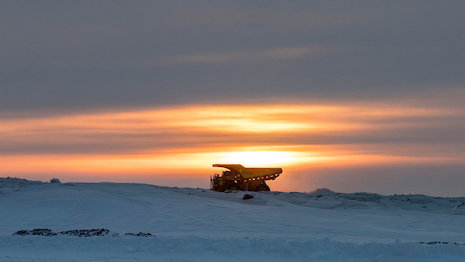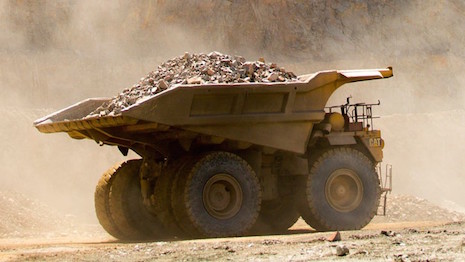 De Beers’ mining site in Canada. Image credit: De Beers
De Beers’ mining site in Canada. Image credit: De Beers
Diamond company De Beers Group has received funding support towards carbon-neutral diamond mining in Canada.
Natural Resources Canada’s Clean Growth Program has awarded De Beers' carbon-capture research a grant of 675,000 Canadian dollars, or about $514,000 at current exchange. De Beers Group has continued investing in conservation and sustainability efforts.
Mineral carbonation
The grant will support research and field demonstrations at De Beers’ Gahcho Kué Mine in the Northwest Territories.
De Beers has partnered with academics from The University of British Columbia, Trent University, University of Alberta and Institut National de la Recherche Scientifique (INRS) to research how to use mineral carbonation to store large volumes of carbon.
De Beers Group supports mining research around the world. Image credit: Debswana
The team accelerates mineral carbonation, a naturally occurring process, by injecting carbon dioxide into processed kimberlite rock. Only 10 percent of the kimberlite’s storage potential can capture the entirety of a mine’s carbon dioxide emissions.
The biggest obstacle is reproducing this process at a large scale.
“We are immensely proud of this collaborative piece of work between industry and academia, and with excellent progress in the project to date there is great potential to achieve carbon-neutral mining operations at sites where this type of rock is present,” said Bruce Cleaver, CEO of De Beers Group, in a statement. “This award will help us accelerate this innovative work that could fundamentally change the carbon footprint of not only the diamond industry, but the mining sector more broadly.”
In addition to Canada, De Beers’ global research program also studies mines in Botswana to compare differences in climates and geology.
De Beers' sustainability initiatives also extend to the broader ecosystems where it mines.
Elsewhere in Africa, De Beers Group has reached another milestone in its mission to save the ecosystem of its Venetia Limpopo Nature Reserve in South Africa.
The company has completed a successful second translocation of elephants in the reserve, moving herds of the animals to Zinave National Park in Mozambique. After starting the initiative about three years ago, this latest move brings the total of relocated elephants to 101 (see story).

